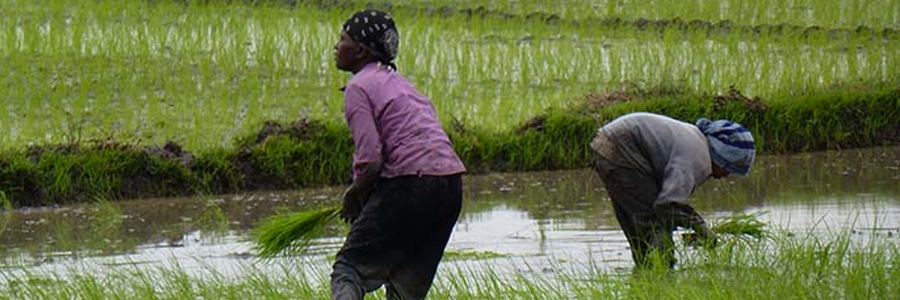IOM, the UN Migration Agency, has partnered with Strathmore University in Kenya to start a Solar Water Pumping course which is being launched on 13 March 2018. The training ensues from the IOM-led Global Solar & Water Initiative (GLOSWI) through European Union humanitarian funding and will be incorporated into the Strathmore Energy Research Center curriculum. It will be run several times each year. Other partners to the project include Oxfam and the Norwegian Refugee Council.
The course is aimed at building the capacity of humanitarian engineers, government specialists, private sector and consultants working in the field of water supply and clean energy.
Over the years, the initiative has already trained many water and energy specialists from various humanitarian agencies and UN bodies in East and Horn of Africa in a bid to make water supply more sustainable, ecological and cost-efficient in both humanitarian and development settings. Many of those trained are providing services to local communities and in settlements for refugees and internally displaced persons.
The use of clean energy in water projects is growing exponentially in the East Africa region, with hundreds of millions of US dollars invested every year.
“Our partnership with Strathmore University is unique in its nature and will serve as a model to share solar water innovations to future engineering practitioners. We are now at a time where clean and affordable energy can increase access to water in places where in the past, access involved walking long distances,” said Jeffrey Labovitz, UN Migration Agency’s Regional Director for East and Horn of Africa.
Across many rural communities and poor urban centers in East and Horn of Africa, millions of people suffer from a dearth of access to clean and safe water. More often, they are forced to trek miles to get water from streams for domestic and animal consumption.
“East Africa offers a huge untapped potential to provide affordable and clean water to communities who need it most,” said Jérôme Burlot, Water and Sanitation expert for EU Humanitarian Aid in East Africa. “By training more water experts we can spread the knowledge and skills to exploit this potential.”
The course will help the trainees with hands-on training while at the same time foster further dialogue on best practices for effective solar water pumping in East Africa. The solar water pumping course will focus on solar technology, fluid dynamics, pump mechanics, hydrology, irrigation, policy and regulatory frameworks. It will also give insights on policy and regulatory frameworks, financing solutions and innovative business models with socio-economic benefits to local economies.
Original source: IOM
Published on 13 March 2018

